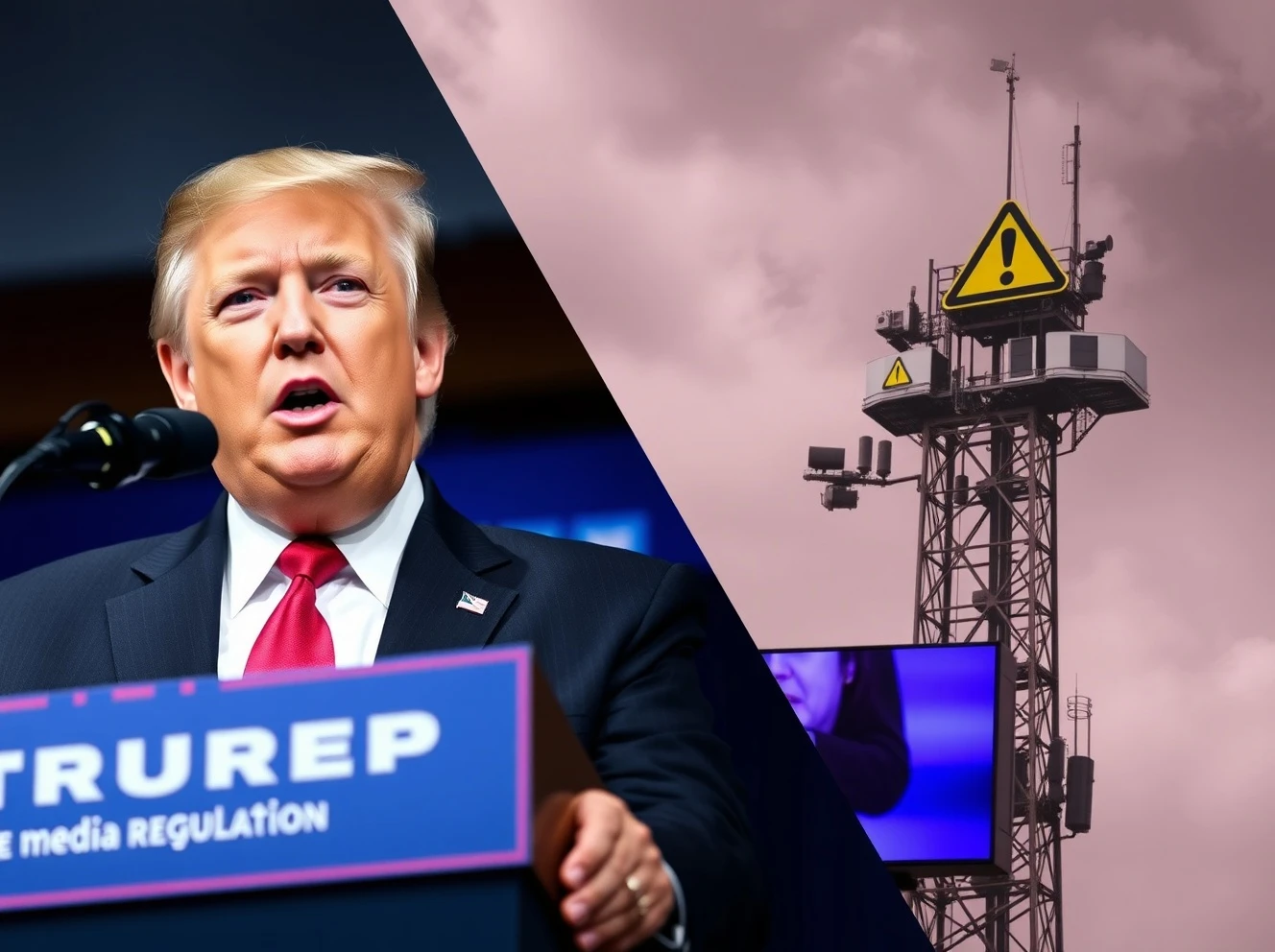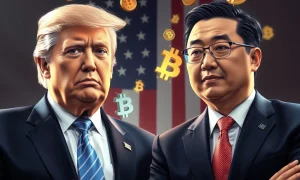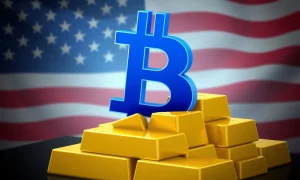President Donald Trump has ignited a constitutional firestorm by suggesting television networks critical of his administration could lose their broadcast licenses. This unprecedented threat emerged during the escalating controversy surrounding ABC’s suspension of Jimmy Kimmel.
Trump’s License Revocation Proposal
Speaking to reporters aboard Air Force One, Trump claimed approximately 97% of media coverage about him remains negative. He specifically questioned whether network owners should retain their broadcast licenses. The President made these remarks while returning from a state visit to the United Kingdom.
Kimmel Monologue Sparks Backlash
The immediate trigger involved Jimmy Kimmel’s recent monologue about conservative influencer Charlie Kirk’s death. Kimmel accused Trump supporters of politicizing the tragedy. Consequently, ABC suspended “Jimmy Kimmel Live!” indefinitely following public and governmental pressure.
Regulatory Response and FCC Position
FCC Chair Brendan Carr condemned Kimmel’s remarks as “offensive and insensitive.” However, legal experts immediately questioned the feasibility of license revocation. Importantly, the FCC licenses individual local stations rather than national networks.
First Amendment Concerns
Legal scholars uniformly agree that revoking broadcast licenses over editorial content would violate the First Amendment. FCC Commissioner Anna Gomez, a Democrat, warned that such threats constitute an attack on free speech. She emphasized the FCC lacks authority to penalize broadcasters for disliked content.
Industry and Political Reactions
Media organizations and free-speech advocates accused the administration of pushing censorship. Former President Barack Obama joined critics labeling this as regulatory overreach. Additionally, local station group Nexstar announced it would stop airing Kimmel’s show.
Broader Implications for Media Freedom
This episode highlights growing concerns about editorial independence in polarized climates. The vulnerability of media institutions facing political pressure continues worrying professionals. Furthermore, the situation demonstrates ongoing tensions between government and press.
Legal Realities of Broadcast Regulation
The current legal framework makes network-wide broadcast licenses revocation practically impossible. Stations receive licenses individually based on technical compliance and public interest standards. Content regulation remains narrowly limited to obscenity and indecency matters.
FAQs
Can the president revoke broadcast licenses?
No, the FCC independently regulates broadcasting under congressional authority. The president lacks direct power over license decisions.
What legal standards govern broadcast licenses?
Licenses require technical compliance and serving public interest. Content restrictions only apply to obscenity, indecency, and profanity.
Have networks ever lost licenses for content?
No major network has ever lost licenses solely due to editorial content. Historical revocations involved technical violations or fraud.
What is the FCC’s actual authority over networks?
The FCC regulates individual stations, not networks. Networks distribute programming to licensed local stations.
How does the First Amendment protect broadcasters?
The First Amendment prevents government punishment of protected speech, including editorial content critical of officials.
What consequences did Jimmy Kimmel face?
ABC suspended his show indefinitely following public backlash and regulatory pressure over his monologue about Charlie Kirk’s death.








